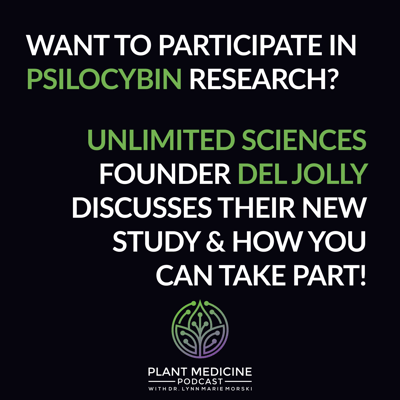How YOU Can Participate in The New Psilocybin Study from Unlimited Sciences and Johns Hopkins
- 41
- 07/01/2020

Summary
Del Jolly is co-founder and director of Unlimited Sciences, a psychedelic research non-profit. He was the outreach director for the Decriminalize Denver team that passed the historic legislation which decriminalized psilocybin in Denver, leading to a nation-wide movement. Before that, he worked for Charlotte’s Web CBD in business development and is on the board of community advisors for the Realm of Caring, a cannabis non-profit.
Along with research, Unlimited Sciences hosts a webinar series called Unlimited Voices and produces content educating the general public on entheogens. Unlimited Sciences’ first study, in conjunction with Johns Hopkins’ Center for Psychedelic and Consciousness Research, intends to understand how the community is using psilocybin in real-world settings.
The goal of the study is to learn more about the effects of using psilocybin outside of the research setting, and any potential factors that could affect those outcomes. By collecting data from individuals who are already planning to use psilocybin, the researchers aim to investigate variables such as demographics, lifestyle, mindset, and personality traits – as well as characteristics of the experience itself, such as dosage, ingestion method, intention, and setting.
Anyone planning to use psilocybin (single dose; not a microdose regimen) outside a research laboratory in the next 6 months is invited to participate.
Along with research, Unlimited Sciences hosts a webinar series called Unlimited Voices and produces content educating the general public on entheogens. Unlimited Sciences’ first study, in conjunction with Johns Hopkins’ Center for Psychedelic and Consciousness Research, intends to understand how the community is using psilocybin in real-world settings.
The goal of the study is to learn more about the effects of using psilocybin outside of the research setting, and any potential factors that could affect those outcomes. By collecting data from individuals who are already planning to use psilocybin, the researchers aim to investigate variables such as demographics, lifestyle, mindset, and personality traits – as well as characteristics of the experience itself, such as dosage, ingestion method, intention, and setting.
Anyone planning to use psilocybin (single dose; not a microdose regimen) outside a research laboratory in the next 6 months is invited to participate.
In This Episode
• How in five years, Del went from being anti-cannabis to co-founding and directing a psychedelic research non-profit organization.
• Why community-provided data about how psilocybin is actually being used, and the effects people are experiencing with it, is crucial for informing future research studies.
• How data points collected through such studies can lead to aligning the financial incentives of insurance companies to support plant-medicine empowered therapies.
Quotes
“As we were moving forward with the decriminalize initiative, I just knew and saw that there’s going to be this huge wave of psychedelic naive folks who are going to hear these stories that are going to come out, whether it’s veterans, or smoking cessation, or whatever it might be, and they’re going to need a safe place to land.” [11:01]
“I continued to grow my knowledge of plant medicine and then I had a personal experience a couple years ago and that was it. I absolutely knew that there is so much potential in these entheogens, and our choice to not study them will go down as probably one of the biggest crimes against the human race.” [16:07]
“If you say: “Hey, how can I get involved in this cause? What can I do?” Most people don’t have time to petition, to collect signatures. They don’t have time to start a non-profit. Their focus is on other things but this is very important to them. This study is a really good opportunity to anonymously provide information on how you’re using psilocybin.” [21:18]
“People are not using psilocybin in a lab, on a couch, with one or two therapists. They don’t. It’s not happening. This way of collecting information allows us to see how the community is using it, what does that look like, and what can we learn from that type of information?” [22:18]
“It’s not our role to get people to vote for psilocybin. It’s more our role to make sure they’re not necessarily voting against it, just like for me (referring to his past), if you’re on the fence, just stay there. If you don’t know, just stay on the fence. Don’t jump on one side because it’s what you think you’re supposed to do.” [38:29]
“I continued to grow my knowledge of plant medicine and then I had a personal experience a couple years ago and that was it. I absolutely knew that there is so much potential in these entheogens, and our choice to not study them will go down as probably one of the biggest crimes against the human race.” [16:07]
“If you say: “Hey, how can I get involved in this cause? What can I do?” Most people don’t have time to petition, to collect signatures. They don’t have time to start a non-profit. Their focus is on other things but this is very important to them. This study is a really good opportunity to anonymously provide information on how you’re using psilocybin.” [21:18]
“People are not using psilocybin in a lab, on a couch, with one or two therapists. They don’t. It’s not happening. This way of collecting information allows us to see how the community is using it, what does that look like, and what can we learn from that type of information?” [22:18]
“It’s not our role to get people to vote for psilocybin. It’s more our role to make sure they’re not necessarily voting against it, just like for me (referring to his past), if you’re on the fence, just stay there. If you don’t know, just stay on the fence. Don’t jump on one side because it’s what you think you’re supposed to do.” [38:29]
Links
* The Psychedelic Medicine Podcast has allowed the Psychedelic Medicine Association to post episodes as an educational resource, and in return the PMA is hosting the podcast show notes.


